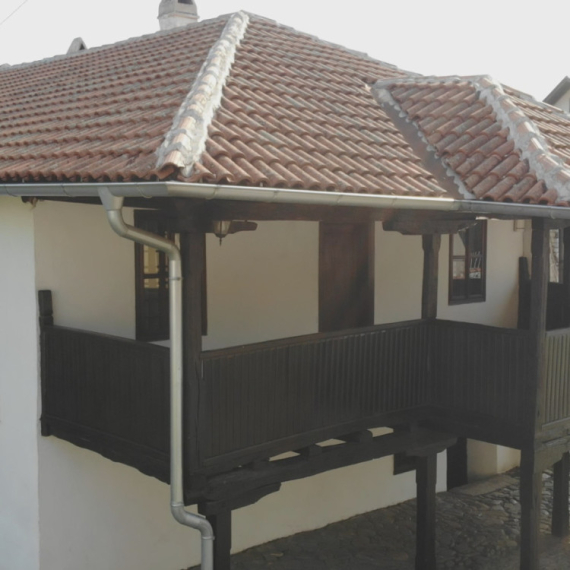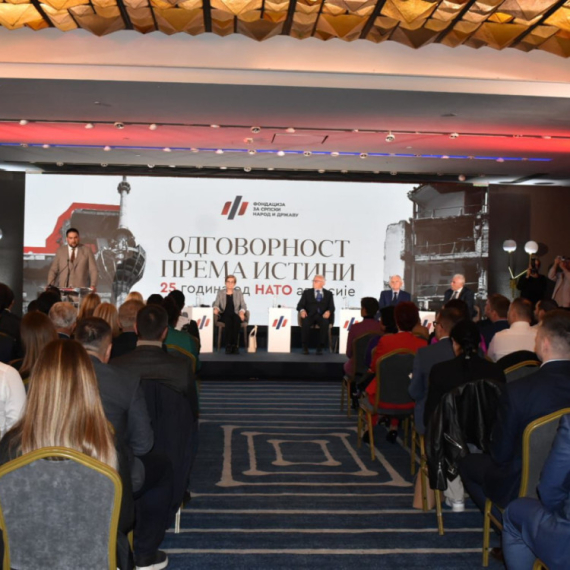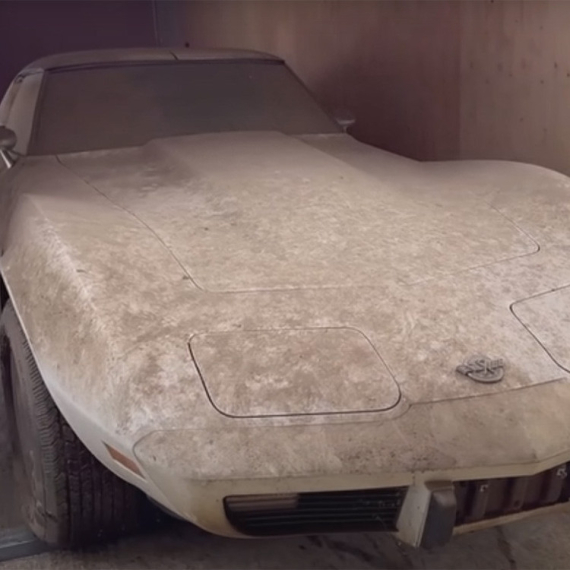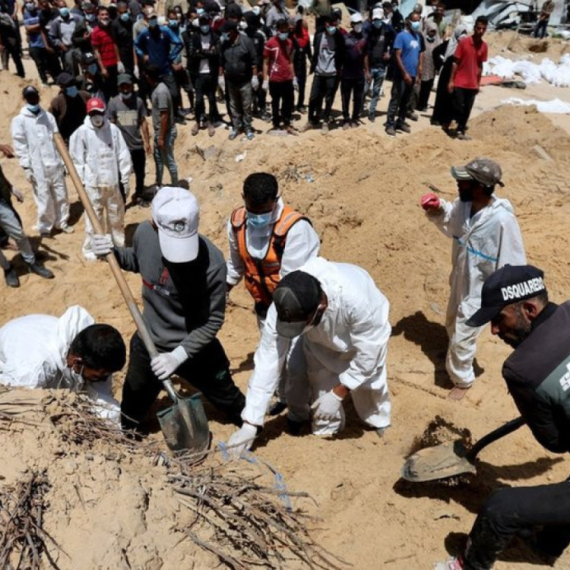Minister warns of fast spending of reserves
Finance Minister Diana Dragutinović said that the NBS should not be spending from the foreign currency reserve this quickly in order to stabilize the dinar.
Monday, 02.02.2009.
11:47

Finance Minister Diana Dragutinovic said that the NBS should not be spending from the foreign currency reserve this quickly in order to stabilize the dinar. The dinar has decreased in value once again this Monday. The National Bank of Serbia (NBS) intervened once again on Friday with the sale of EUR 45mn on the inter-banking market because of the increased demand for the euro. Minister warns of fast spending of reserves Since the beginning of the year, the central bank has sold EUR 376.3mn in order to stop any greater oscillation in the value of the Serbian dinar (RSD). Dragutinovic and NBS Governor Radovan Jelasic agreed that the money coming in from the sale of NIS should help to stabilize the domestic currency. They were both guests on a B92 TV talk show Sunday night when the finance minister said she believes that the NBS should slow down its spending of foreign currency at this moment. “We have a relatively adequate and comfortable level of foreign reserves, but they are something that gets spent and it is not a endless supply,” Dragutinovic said. She said that she expects Gazprom to pay the EUR 400mn for the purchase of 51 percent of NIS by Monday. The payment will be done through the Raiffeisen Bank, which will charge its fee of EUR 20,000 for the transfer. Jelasic said that this money will help in keeping the dinar stable and stopping spending from the foreign currency reserves. He said that there will also be new arrangements with the International Monetary Fund. But he warned that the dinar cannot be stabilized through the reserves alone, adding that the government must help as well. Jelasic said that it will be hard to pay pensions at their current level and that they should be decreased, because in between one-third and one-fourth of the budget is being used for transfers to the pension fund. However, Dragutinovic disagreed. “I think that the crisis period should not make cuts, and nothing should be done to make the crisis even deeper. The right time for cuts and to do things that you did not do earlier, and there is a lot that we did not do earlier, will be when the economy gets back on its feet,” she said. The minister also stated that the country must cut spending and that the sale of the state-owned telecommunications operator Telekom Srbija could be another way of getting foreign currency into the country. However, before making such a decision, loans should be sought from international financial institutions in order to neutralize the lack of capital coming in from abroad, Dragutinovic said.
Minister warns of fast spending of reserves
Since the beginning of the year, the central bank has sold EUR 376.3mn in order to stop any greater oscillation in the value of the Serbian dinar (RSD).Dragutinović and NBS Governor Radovan Jelašić agreed that the money coming in from the sale of NIS should help to stabilize the domestic currency.
They were both guests on a B92 TV talk show Sunday night when the finance minister said she believes that the NBS should slow down its spending of foreign currency at this moment.
“We have a relatively adequate and comfortable level of foreign reserves, but they are something that gets spent and it is not a endless supply,” Dragutinović said.
She said that she expects Gazprom to pay the EUR 400mn for the purchase of 51 percent of NIS by Monday. The payment will be done through the Raiffeisen Bank, which will charge its fee of EUR 20,000 for the transfer.
Jelašić said that this money will help in keeping the dinar stable and stopping spending from the foreign currency reserves.
He said that there will also be new arrangements with the International Monetary Fund. But he warned that the dinar cannot be stabilized through the reserves alone, adding that the government must help as well.
Jelašić said that it will be hard to pay pensions at their current level and that they should be decreased, because in between one-third and one-fourth of the budget is being used for transfers to the pension fund.
However, Dragutinović disagreed.
“I think that the crisis period should not make cuts, and nothing should be done to make the crisis even deeper. The right time for cuts and to do things that you did not do earlier, and there is a lot that we did not do earlier, will be when the economy gets back on its feet,” she said.
The minister also stated that the country must cut spending and that the sale of the state-owned telecommunications operator Telekom Srbija could be another way of getting foreign currency into the country.
However, before making such a decision, loans should be sought from international financial institutions in order to neutralize the lack of capital coming in from abroad, Dragutinović said.











































Komentari 0